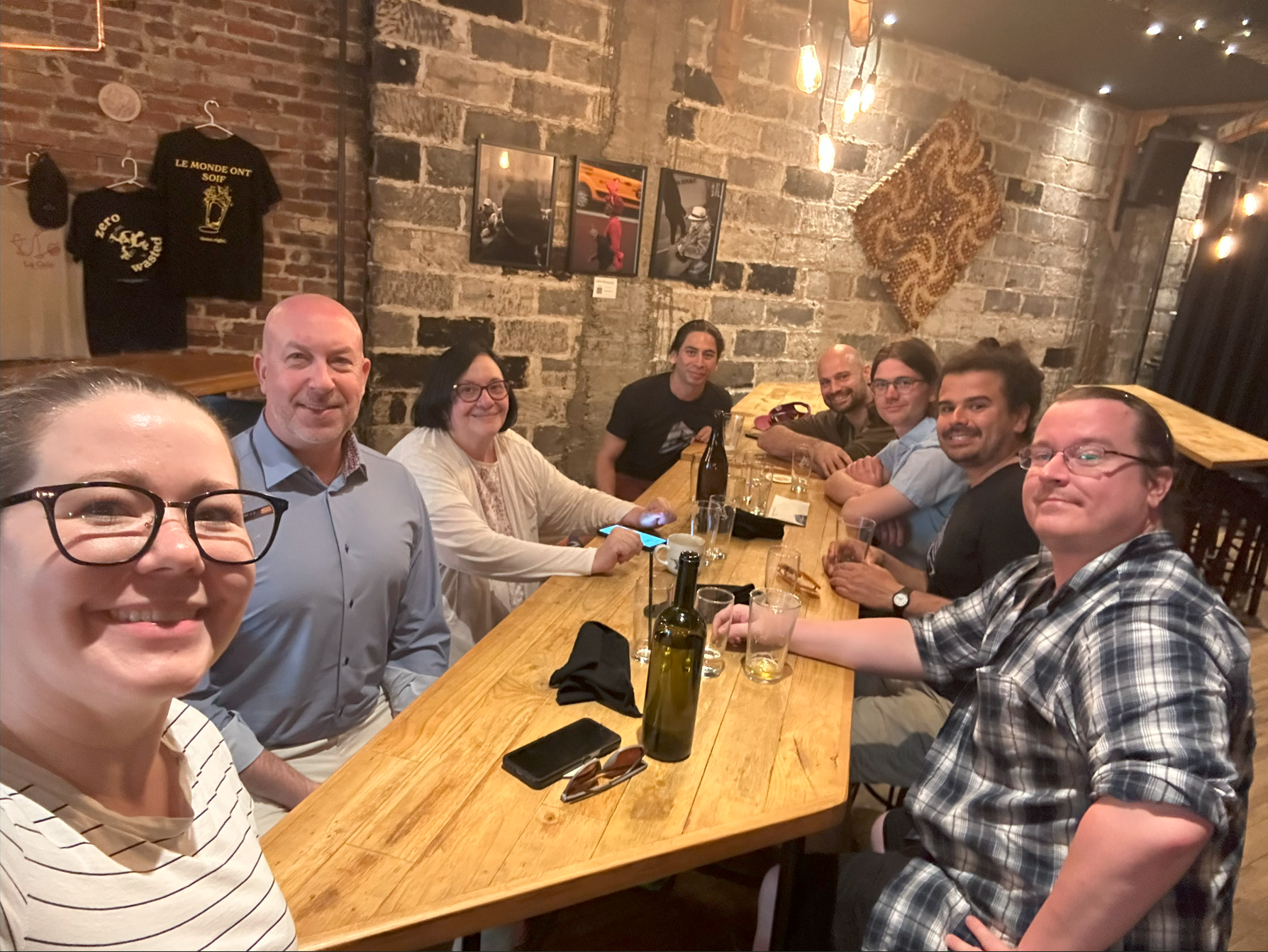As the AI and quantum computing future takes hold, Canada needs a quantum ready workforce.
Perimeter, along with the University of Waterloo and other degree-granting institutions, have long been involved in training master’s students and PhD students. We also provide postdoctoral researchers with positions in every aspect of theoretical physics.
During Perimeter Institute’s recent visit to Montréal as part of a cross-country 25th anniversary tour, members of the group made time to reconnect with some Perimeter alumni in the region.
Nicolas Quesada, for example, is an assistant professor of engineering physics, teaching quantum information and quantum optics at Polytechnique, but he is a former Perimeter postdoctoral researcher. He worked with Aggie Branczyk, a former teaching fellow at Perimeter who is now building her own business.
Now, Quesada has his own research group of students who are being trained in quantum physics and are spreading out to yet other institutions.
Florian Hopfmüller is a quantum computing scientist now working at Nord Quantique. He did his PSI masters and his PhD at Perimeter under the supervision of faculty member Laurent Freidel. He also held a Vanier Canada Graduate Scholarship.
Hopfmüller was doing theoretical work in general relativity, and then decided to go into applied research in the quantum industry.
Although both academia and industry were attractive for him as a researcher, he said industry was more suited to him because it is much more hands-on.
“I still do research … but it is closer to actual practice than it would be at Perimeter. I do software, running it on hardware.”
Others were inspired by Perimeter when they were very young.
Giovanni Vizcardo now teaches at Université du Québec à Chicoutimi. Originally from Peru, he was a CEGEP student in Quebec when he was encouraged to attend a summer program at Perimeter, then called the International School for Young Physicists (ISSYP) program.
During the summer program, he got to meet actual physicists and he says it inspired him to do what he is doing today. He now teaches a broad range of theoretical physics, from astrophysics (his own background is in cosmology) to metrology, the science of measurement.
“I love it. Every day I get to teach them something new or just give them a different perspective,” Vizcardo said. “I try to make them see that physics is everywhere – on your cell phone and even when you are taking a shower, why does the mirror fog up?”
Other Perimeter alumni at the event included Martin Houde, who was in the master’s program at Perimeter and is now a postdoctoral researcher at Polytechnique, and Isabeau Prémont-Schwarz, who did his master's’ and PhD at Perimeter and became a faculty lecturer in computer science at McGill University. He is just starting a tenure track position at Université Laval in Quebec City, where he will be teaching machine learning and computer science.
Vizcardo and other alumni said Perimeter had the impact of broadening their horizons and showing them the depth and breadth of careers in theoretical physics.
“It gave me a better idea of what I could be doing,” he said. He knew he could do research or teach, “but at Perimeter, I was meeting a lot of people and seeing that the physics community is very diverse. It doesn’t have to be a linear track,” Vizcardo said.
À propos de l’IP
L'Institut Périmètre est le plus grand centre de recherche en physique théorique au monde. Fondé en 1999, cet institut indépendant vise à favoriser les percées dans la compréhension fondamentale de notre univers, des plus infimes particules au cosmos tout entier. Les recherches effectuées à l’Institut Périmètre reposent sur l'idée que la science fondamentale fait progresser le savoir humain et catalyse l'innovation, et que la physique théorique d'aujourd'hui est la technologie de demain. Situé dans la région de Waterloo, cet établissement sans but lucratif met de l'avant un partenariat public-privé unique en son genre avec entre autres les gouvernements de l'Ontario et du Canada. Il facilite la recherche de pointe, forme la prochaine génération de pionniers de la science et communique le pouvoir de la physique grâce à des programmes primés d'éducation et de vulgarisation.

